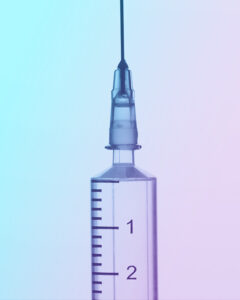Stages Of Heroin Addiction
Not everyone who uses heroin will become dependent. For some, one use is all they need to know that heroin is not their substance of choice. For others, it turns from a weekend activity to an everyday need. But why? How does heroin take hold so quickly, and are there varying degrees of addiction?

Here in Sarasota County, the sheriff’s office has many programs to help keep illicit substances off the streets and to educate the public on how to get help for suspected overdoses. Clean Recovery Centers supports these efforts in all of the Suncoast communities, from Tampa to New Port Richey, Sarasota, and Largo. We work to provide as much education on substance use as possible. Today, we are discussing the stages of heroin addiction, and how to help those experiencing them.
What Are the Stages of Heroin Addiction?
Typically, there are four stages of heroin addiction. Not every person will experience each stage of addiction or even experience the same symptoms. In general, these stages show the progression of heroin addiction.
The First Stage: Experimenting with Heroin
As with any substance, the first stage is trying it for the first time. Despite being illegal, heroin is relatively easy to get a hold of. With experimental use, the person may be influenced by friends or even family members to try heroin. This may be all it ever turns into, using heroin with friends here and there. Some people decide in this stage that they do not like heroin. However, the experimental stage can open the door to a full-on heroin addiction.
Regular Use Stage: When it Becomes a Habit
In this stage, heroin has become a daily occurrence. The person using has started relying on heroin as a coping mechanism for stressful or difficult situations. Signs of heroin addiction will become more evident as the person continues their use. Things like job performance and relationships begin to decline due to heroin use.
Withdrawal Stage: Uncontrolled Addiction
At this stage of heroin addiction, not only is the mind dependent but the body as well. This means that when heroin is not present, withdrawal symptoms appear. The brain has adapted to having heroin in the system, and without it, chemical imbalances cause uncomfortable side effects. Withdrawal symptoms include:
- Yawning
- Mood swings
- Sweating
- Anxiety
- Agitation
- Muscle aches
- Insomnia
- Vomiting
- Diarrhea
- Abdominal cramping
- Dilated pupils
Heroin withdrawal symptoms can begin as little as 6 hours after the last use. This is why in this stage of heroin addiction life can get uncontrollable. Heroin becomes the central focus, and it must be a priority to avoid withdrawal symptoms. Also at this point, heroin side effects are wreaking havoc on the body and mind.
Recovery Stage: In the Clear?
The recovery stage is when the person using heroin has decided to stop. This can mean a variety of different scenarios. Some people are able to go through withdrawal at home and stay clear of heroin altogether. Others may enter treatment with detox or a residential program. Some will need extra support through groups such as Narcotics Anonymous (NA), while some rely on the support of family and friends. No matter which path or program in which someone chooses to recover from heroin addiction, there is no true way to be “in the clear.”
Relapse is common for those in recovery. This means that the person has detoxed and is heroin-free for some time and then uses it again. The danger of relapse is that most think they can go back to using the same amount of heroin they were using in the past. This is one of the biggest causes of heroin overdose, as the body becomes overwhelmed with the amount of heroin taken. However, a relapse does not mean that the person is no longer in recovery. Many people who relapse choose to get back into whichever recovery method they were using.
The Dangers of Heroin
Heroin is illegal, meaning that there is no organization looking over how it is made or distributed. Dealers can mix in other substances with heroin and not tell the person using it. Fentanyl is one of the most common substances to be mixed with heroin. Because both are depressants, the risk of overdose increases. Also, some substances look similar and can be hard to distinguish. Dealers are only worried about making money, and selling substances such as cocaine or meth in place of heroin can happen. Being able to identify heroin can help in these situations.
Getting Treatment for Heroin Addiction in Tampa, Florida
 No matter what stage of heroin addiction you may be in, there is help to stop today. At Clean Recovery Centers, our dedicated staff treats you as a person and listens to your needs in order to find the best treatment path that works. Our treatment for heroin use disorder includes:
No matter what stage of heroin addiction you may be in, there is help to stop today. At Clean Recovery Centers, our dedicated staff treats you as a person and listens to your needs in order to find the best treatment path that works. Our treatment for heroin use disorder includes:
The first phase of treatment is called preparation. This includes a 24-hour detoxification period monitored around the clock medically and with emotional support. Detox can be dangerous as heroin withdrawal symptoms can become fatal. We offer medication-assisted treatment during this time to ensure the safety and well-being of the individual.
At Clean Recovery Centers, we have different residential treatment options. For heroin use disorder, clients typically stay in residential I housing after detox. This is supervised 24/7 and provides meals, structured schedules, and daily therapy to address the root causes of addiction. Our team is capable of diagnosing a mental health condition at any point in treatment, and we can adjust your program to fit those needs. Our facilities also offer community housing after residential I treatment is complete. You will never have to worry about having a place to stay. Our goal is to provide everything you will need in order to focus on healing.
Outpatient services are for our clients who are transitioning into lower levels of care. Clean Recovery Centers do have housing options available for those who need it. Clients come to our facility for treatment and therapy then have the rest of the day to do what they would like. This program typically lasts 6-8 weeks.
If you or someone you love is showing signs of heroin addiction, reaching out today could help save a life. At Clean Recovery Centers, we are here every step of the way. Even after you finish our treatment, we have alumni meetings and support for as long as you need. Call us today at (888) 330-2532 to schedule an appointment.
FAQs
How many stages of change are there in addiction?
There are typically four stages of change in addiction.
How do you move through stages of change?
Not every person moves through stages of change the same. The stages describe how substance use progresses from the first time using to craving/needing the substance.
How long does it take for a person to change their behavior?
Every person is different, but once the substance has become the focal point, the behavior will change to focus on the substance.
Sources:
- https://www.sarasotasheriff.org/programs_and_amp_services/crime_prevention/drugs_addiction.php


